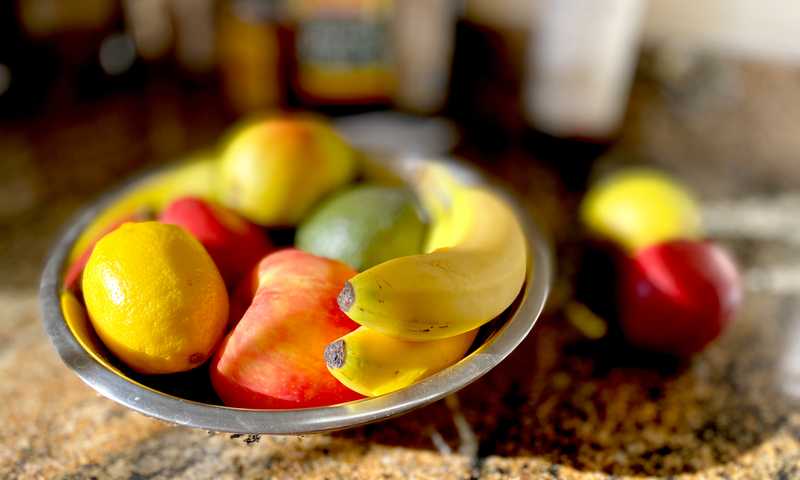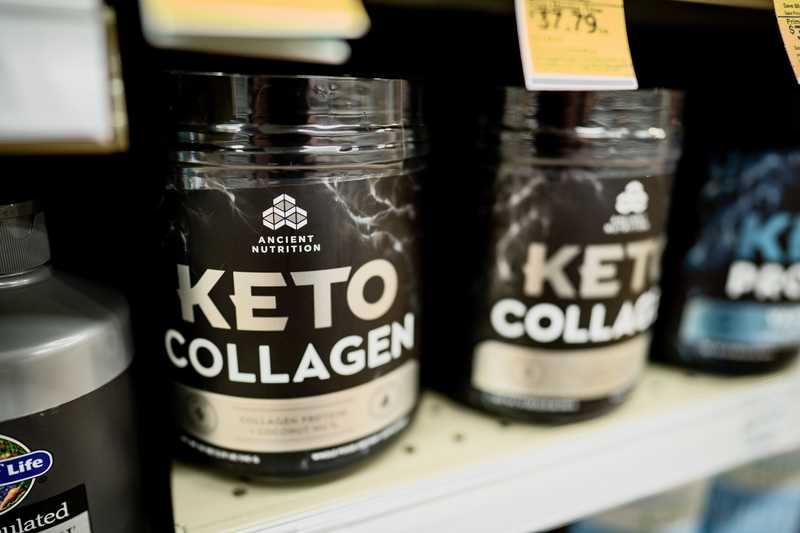Whether your daily activities include competitive sports, leisurely physical activity, or working around your home, healthy muscles and bones provide the foundation to all your movement activities. The building blocks of healthy muscle and bones come through choosing healthy foods. Good nutrition promotes a healthy musculoskeletal system, leading to reduced injuries and faster recovery.
But how important is nutrition in injury recovery?
Keep reading to find out how nutrition impacts a whole range of body systems related to sports, including: muscle and bone strengthening, inflammation, pain, preventing muscle loss, and promoting injury recovery.
The Right Nutrition Builds Stronger Muscles and Bones
The musculoskeletal system—composed of the skeleton, muscles, tendons, and cartilage—is the body's framework. Strength training or consistent exercise combined with the right diet helps promote a healthy, resilient framework. With a strong foundation, you reduce the risk of injury.
Check out the benefits of the following foods:
- Fruits and leafy green vegetables: Increase bone strength with calcium
- Mushrooms : Increases muscle mass and strength with vitamin D
- Almonds : Contains calcium and protein which strengthens bones and builds muscle
- Fatty fish such as tuna and salmon: Reduces inflammation via omega-3 fatty acids
In general, a diet of fruit, vegetables, lean meats, and whole foods (not processed foods) promotes muscle and bone strength and keeps weight within a healthy range. This matters because a healthy weight results in less stress on the joints and muscles.
In fact, weight and nutrition are linked to a number of musculoskeletal and health problems including osteoarthritis, rheumatoid arthritis, low back pain, osteoporosis, type 2 diabetes (T2D), and risk of injury with falls.1
Lifestyles that include appropriate exercise and good nutrition not only reduce the risk of injury but make it easier to recover when an injury does occur.
Good Nutrition is a Key Factor in Injury Recovery
Following an injury, you will likely need to rest to give the injury time to heal. Resting muscles for extended periods of time can lead to muscle loss. Total time of rest depends on the severity of the injury.
Inactivity can lead to muscle loss which can happen more quickly than people would like. Decreasing the impact of muscle loss due to inactivity is a combination of exercise, nutrition, and protein supplementation.2 While this won't totally eliminate all muscle loss, it can provide a proactive step to shorten the overall recovery journey.
Here's what you need to know:
- Consumption of protein during recovery will promote muscle rebuilding and reduce muscle loss. Good proteins for muscle restoration include eggs, fish, and beef.
- Protein eaten at each meal helps muscle recovery and reduces atrophy from decreased muscle use.
- Antioxidants, such as vitamin E, are essential for strong muscles.
- Chinese herbal medicines, such as sinjunzi decoction and ligusticum, can also reduce muscle wasting.
- Amino acids support the muscle rebuilding process.3 Foods high in amino acids are quinoa, eggs, turkey, cottage cheese, fish, and mushrooms.
Inflammation, Nutrition, and the Injury Recovery Process
During the first stage of the healing process, inflammation is important for muscle rebuilding and regeneration. This is because the inflammatory process allows white blood cells to perform their healing work. During this stage, rest and immobility are needed to allow muscle tissues to repair themselves.
Stage two involves a gradual return to activity and strengthening. Unfortunately, inflammation sometimes continues during this stage—but instead of being helpful, it may prolong the process of returning to activity.
So, reducing inflammation is an important part of the overall recovery, and good nutrition can help you accomplish this. Anti-inflammatory agents include omega-3 fatty acids.
Omega 3 can be consumed in the form of pills or in the following foods:
- Fish
- Vegetables (Brussel sprouts, kale, spinach, salad greens, flaxseeds, and chia seeds)
- Walnuts
Understanding the role of diet and inflammation is better understood by looking at omega 3 consumption and arthritis. With arthritis, inflammation causes pain, joint damage, and decreased ability to perform daily activities.
Promising research has found a diet containing omega 3 reduces the inflammation response for those with arthritis.4 So, it stands to reason that omega 3 is helpful for reducing general inflammatory responses and provides a natural option to support healing and recovery.
Limiting Processed Carbs and Sugar Promotes Muscle Recovery
Processed carbohydrates, sugar, and other foods can interfere with muscle recovery. Furthermore, consuming processed foods can lead to weight gain during the inactive recovery period, which will complicate and prolong recovery. Processed foods include refined grains, fried foods, and sugary snacks.
On the other hand, natural dietary carbohydrates can facilitate muscle recovery by providing energy and nutrients. Helpful dietary carbohydrates can be found in whole, organic foods like fruits, vegetables, nuts, and dairy products5. The overall goal is to choose foods that meet nutrient and fiber needs while avoiding unneeded amounts of fat or sugar.
Eat Your Vitamins for a Healthy Body
Want to get health benefits and healing but not sure how to squeeze in all those nutrients? Good thing you can consume your vitamins either as capsules or through fortified foods.
If you're looking for some of the health benefits mentioned in this blog, check out the following food ideas to get the vitamins you need for healing and overall health.
To get you started, here is a list of some foods that contain[^eat-love-life] vitamins:
- Eggs contain vitamin D for calcium absorption for healthy bone growth
- Dark, leafy greens (e.g., spinach, collard greens, arugula) contain vitamin A, C, and K for calcium
- Almonds contain vitamin E—antioxidants to improve skin health
- Cheese contains calcium, zinc, protein, vitamin A and vitamin B12 for proper function of the nerves
Start tasting and exploring with an eye on healthy choices. With the right foods, you'll not only enjoy eating, you will provide vital nutrition to your body for health and healing.
CityPT: We provide nutrition education as part of healing
Physical therapists are experts on muscle recovery and healing, and good nutrition plays a key role. While physical therapists are not nutritionists, they have a vast background in human health for supporting strong muscles and bones to prevent injury or promote recovery.
CityPT clinicians are dedicated to addressing the whole person and love providing education about the right foods to support your recovery and prevent re-injury. We'll connect you with research and resources to help you incorporate nutrition into your injury recovery. CityPT therapists know healing and recovery requires lifestyle changes, including good nutrition, adaptive recovery exercises, and injury prevention strategies.
Before you go, please read our disclaimer. This blog is intended for informational purposes only. We are not providing legal or medical advice and this blog does not create a provider-patient relationship. Do not rely on our blog (or any blog) for medical information. Always seek the help of a qualified medical professional who has assessed you and understands your condition.
References
Footnotes
-
Lewis R, Gómez Álvarez CB, Rayman M, Lanham-New S, Woolf A, Mobasheri A. Strategies for optimising musculoskeletal health in the 21st century. BMC Musculoskelet Disord. 2019;20(1):164. https://www.ncbi.nlm.nih.gov/pmc/articles/PMC6458786/ ↩
-
Gao Y, Arfat Y, Wang H, Goswami N. Muscle atrophy induced by mechanical unloading: Mechanisms and potential countermeasures. Front Physiol. 2018;9:235. https://www.frontiersin.org/articles/10.3389/fphys.2018.00235/full ↩
-
Foods high in amino acids. Webmd.com. Accessed February 26, 2021. https://www.webmd.com/diet/foods-high-in-amino-acids ↩
-
The benefits of omega-3 fatty acids for arthritis. Arthritis.org. Published July 29, 2015. Accessed February 26, 2021. http://blog.arthritis.org/living-with-arthritis/omega-3-fatty-acids-arthritis/ ↩
-
What are the sources of Dietary Carbs? Sfgate.com. Published June 13, 2012. Accessed February 26, 2021. https://healthyeating.sfgate.com/sources-dietary-carbs-2987.html ↩


